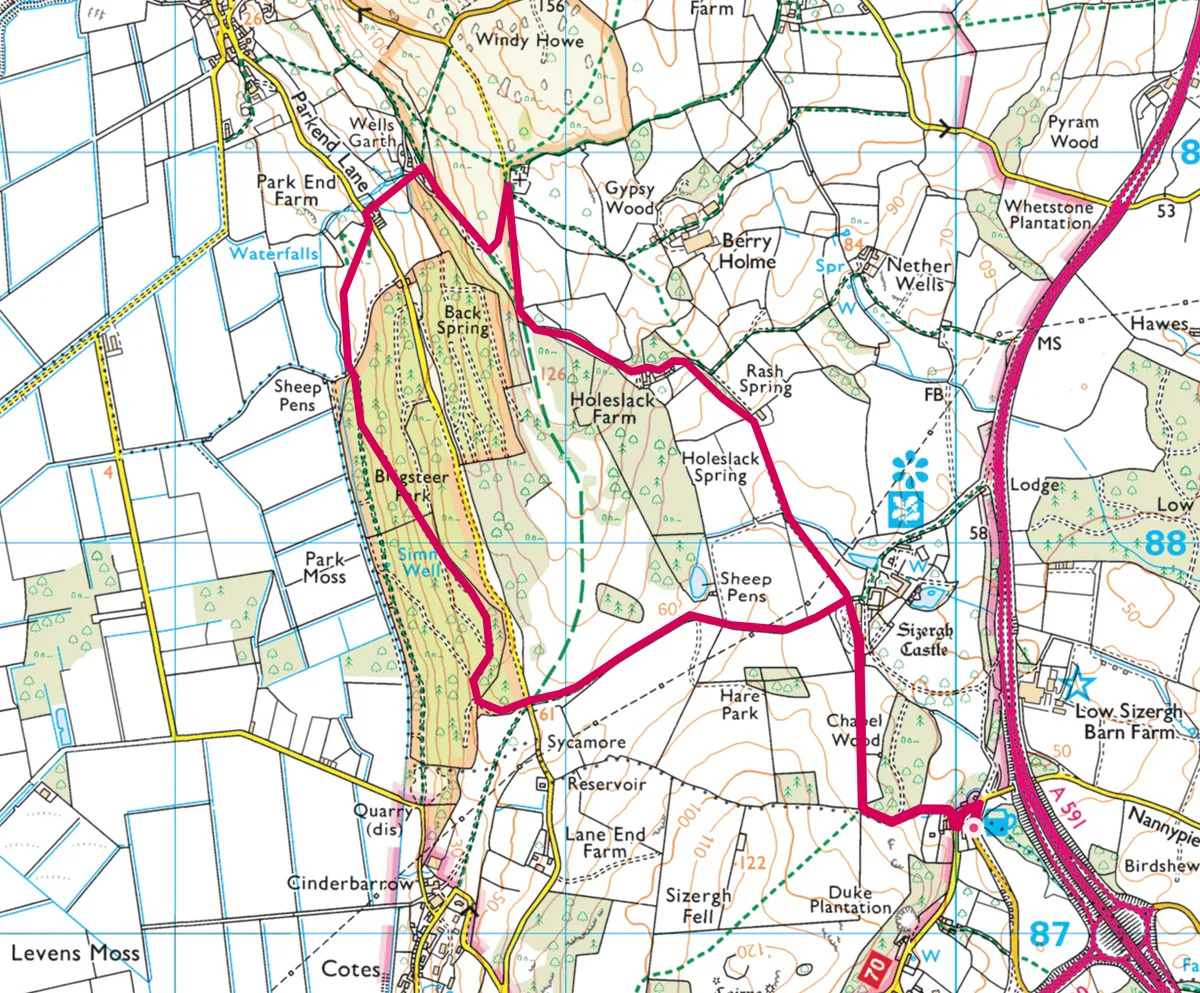Wordsworth’s famed daffs nod their heads to countless Lake District visitors beside Ullswater.
Far more secret are the woods above the tiny village of Brigsteer, nestled amid limestone hills above the Lyth Valley and Morecambe Bay. Here, wild Lenten lilies (an old English name for a native wild daffodil) stud the wooded slopes of Brigsteer Park, succeeded by ramsons and bluebells in a profusion of spring colours.

This easy stroll passes Sizergh Castle before following woodland paths to tranquil Helsington Church, and one of the finest viewpoints in this corner of old Westmorland, an area earmarked for inclusion in an extended Lake District National Park.
Brigsteer Woods walk
4 miles | 2 hours | easy-moderate
1. Through the kissing gate
Take the rising lane beside the Strickland Arms in Sizergh and, after a hundred metres, fork back-right in front of cottages. Bend left; then from a waymarked gate climb a path to a corner kissing gate; turn right through pastures to reach Sizergh Castle car park. At its far side, go left along Ashbank Lane, continuing to a minor road.
2. Brimstone butterflies
Cross directly into Brigsteer Park Woods and continue to a gateway. Turn right, gently uphill, before dropping gradually left through the woods, where coppicing encourages the delicate wild daffodils that erupt throughout the spinney.

Aim to reach the far bottom corner of the woods and a gate into pasture. Now, shadow the field road up to the nearby Park End Farm. Cross the lane into the path through the yard, then rise to the top-left field corner gate, high above an unusual little waterfall. Turn right up the steep track; beyond the trees, turn up the slope to find Helsington Church. Clear days allow extensive views far into the mountains, sweeping from the Coniston Fells across distant Scafell to the Langdales.
3. Medieval pele tower
Facing the church, go right along the track, presently bending left to Holeslack Farm. Just beyond the barn look right for a waymarked, initially wood-edge path (keep right at the next barn) back to Sizergh Castle. Memorable grounds (including a huge limestone rock garden and the National Collection of hardy ferns) surround the enhanced medieval pele tower. It was built as a place of refuge from marauding Scots, then developing as a country mansion. Retrace your steps to the Strickland Arms, named after the family who have lived at Sizergh since 1239.
Map
Brigsteer Woods walking route and map.

